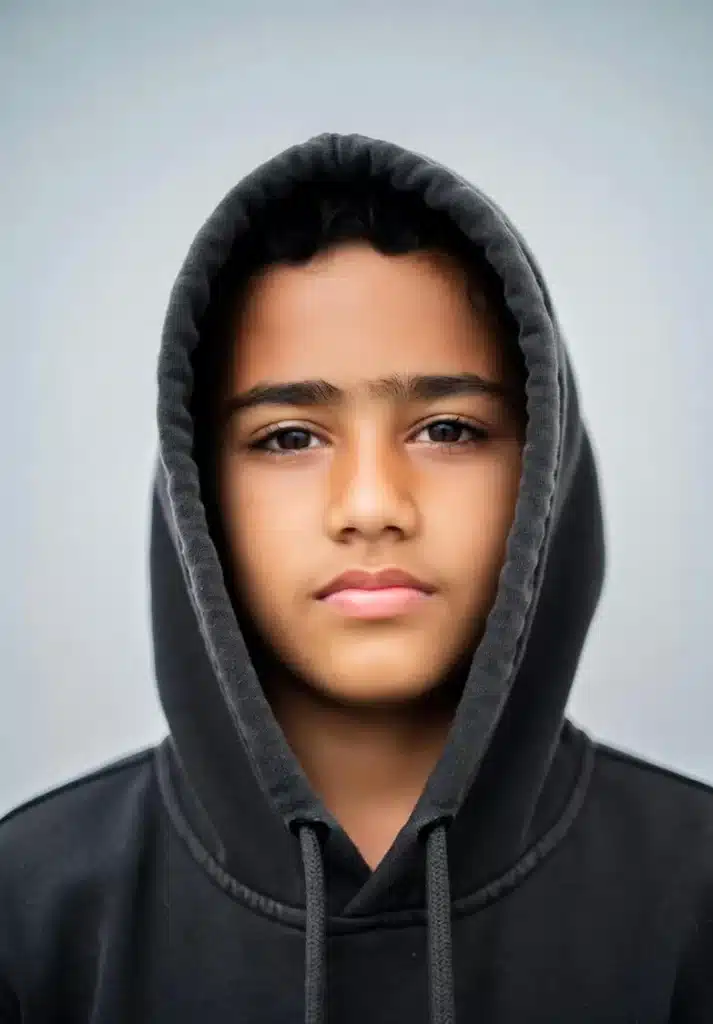- Home
- Sexual Abuse
- Juvenile Detention Abuse
- Maryland Juvenile Detention Center Lawsuit
Maryland Juvenile Detention Center Lawsuit
- February 13, 2026
-
Sarah Miller
- Fact Checked By Our Attorneys
Across Maryland, survivors have reported sexual abuse, child sexual abuse, and physical violence inside state-run juvenile detention centers and juvenile detention facilities. Many were sexually abused by staff or others in environments where they should have been safe and protected. These failures have led to lawsuits seeking justice, accountability, and financial recovery for the lasting harm caused.
If you or a loved one suffered abuse in a Maryland juvenile detention center, you may still have time to act speak with an experienced attorney today in a free, completely confidential case evaluation to understand your legal options.
No Win, No Fee. Let the Best Sex Abuse Attorneys Fight for your Compensation!
Key Takeaways:
Survivors allege widespread abuse in Maryland juvenile detention centers, including physical violence, child sexual abuse, and neglect by staff and administrators.
Recent reforms, such as the Maryland Child Victims Act, make it easier for survivors to file child sexual abuse claims, even if the abuse happened years ago.
Multiple federal lawsuits and civil lawsuits accuse correctional officers, state officials, and contractors of failing to protect children and allowing rampant abuse to continue.
Free, confidential case evaluations are available to help survivors understand their rights and legal options.
Find out your eligibility in 2 minutes
If your child has been a victim of sexual abuse, you are not alone. Many families face the same fear, pain, and search for justice. Our team can connect you with experienced child sexual abuse attorneys who understand these sensitive cases, protect your child’s rights, and guide your family through filing a legal claim for the compensation and accountability you deserve.
Begin your free and confidential case review today.

Abuse at Maryland Juvenile Detention Centers
For decades, reports of childhood sexual abuse, physical assaults, and emotional abuse have surfaced from inside Maryland juvenile detention centers. Many survivors have said they were sexually abused by correctional officers, staff, or other detainees while confined in state-run juvenile detention facilities. What should have been a rehabilitative environment for vulnerable children instead became a setting for institutional abuse and recurring abuse that left lasting trauma.
History of Reported Abuse and Cover-Ups
Abuse inside Maryland’s juvenile detention system is not a recent problem. Former detainees have described sexual brutalization, beatings, and systemic failures going back decades. Some sex abuse lawsuits allege that abuse happened decades ago but was hidden by administrators who were more focused on protecting reputations than protecting children.
Multiple lawsuit claims suggest there was a pattern of cover-ups where incidents of sexual assault or staff misconduct were minimized, not reported, or handled internally without accountability. This culture allowed widespread abuse to continue, leaving child victims without justice. Survivors say the abuse suffered often led to long-term mental health issues, including PTSD, depression, and trust difficulties that still affect them today.
Investigations by State and Federal Agencies
The Maryland Attorney General’s Office and federal court investigations have played a key role in uncovering the extent of abuse in juvenile services facilities. Federal lawsuits filed under the Prison Rape Elimination Act have revealed shocking failures to protect detainees from being sexually assaulted or otherwise harmed.
The Maryland Office of the Inspector General for Juvenile Services has also conducted internal investigations into staff behavior, finding evidence of staff misconduct, negligence, and failures to report. Despite these investigations, many survivors argue there has been just a real lack of reform to prevent abuse from continuing.
Lawsuits filed in both state court and federal court allege that state officials and administrators ignored warning signs, failed to implement safety protocols, and allowed abuse to occur under their watch. This pending litigation continues to shed light on how deeply broken the juvenile justice system has been in Maryland.
Learn about Juvenile Detention Center Lawsuit.
Maryland Juvenile Detention Center Lawsuit Updates
In recent years, multiple federal lawsuits and state court cases have been filed against Maryland juvenile detention centers. These lawsuits allege sexual abuse, sexual misconduct, and physical violence carried out by staff and tolerated through systemic failures within the state’s juvenile justice system. Survivors argue that abuse occurred not just at isolated facilities but across several juvenile detention facilities and youth detention facilities, exposing deep-rooted issues in how vulnerable children were supervised and protected.

Recent Federal and State Lawsuits Filed
Dozens of survivors have stepped forward to file claims under the Maryland Child Victims Act, a law that allows child victims of childhood sexual abuse to pursue justice even if the abuse happened decades ago. This reform opened the door to new sex abuse lawsuits targeting state-run juvenile facilities and private institutions contracted by the Maryland Department of Juvenile Services.
Many of these lawsuits alleging sexual brutalization claim that detention officers and correctional officers sexually assaulted or physically abused children in custody, while state officials ignored warning signs and failed to intervene. Federal lawsuit filings have also accused the state of violating the civil rights of detainees by failing to provide a safe environment, leaving survivors sexually abused and traumatized.
The Maryland Attorney General’s Office has acknowledged ongoing investigations, and cases filed in both state and federal court continue to expand. Each lawsuit claim adds pressure on lawmakers and the justice system to confront widespread abuse that many argue was ignored for far too long.
Ongoing Settlements and Negotiations
While some cases remain in pending litigation, others are moving toward settlements. Attorneys involved in these lawsuits argue that the state faces potential financial liability running into millions of dollars due to decades of repeated abuse and failures to protect detainees.
In some instances, survivors and their legal teams have entered negotiations with the state to reach fair compensation for the abuse suffered, including coverage for therapy, medical care, and the lifelong impact of trauma. Settlement discussions often take into account not only the sexual assault itself but also the systemic failures that allowed abuse to persist.
These civil lawsuits are not only about financial recovery they are also designed to hold the juvenile justice system and Maryland lawmakers accountable. Survivors and advocates stress that settlements must go hand in hand with institutional reform to prevent future institutional abuse in Maryland youth detention centers.
How Survivor Testimony Is Shaping Reform
Perhaps the most powerful force driving change is the testimony of former detainees. Survivors of childhood sexual abuse have come forward to describe how they were sexually assaulted, beaten, or subjected to emotional abuse inside facilities like the Waxter Children’s Center and other juvenile detention centers.
These stories, once hidden by fear and stigma, are now central to both lawsuit claims and legislative reform. Survivor accounts have influenced Maryland lawmakers to strengthen oversight of juvenile services, expand the Child Victims Act, and consider broader protections for Maryland child victims.
Organizations such as the Jail Innovation Lab and child advocacy groups have also used survivor testimony to highlight systemic failures, including a just a real lack of staff training, accountability, and reporting mechanisms. Their work underscores how deeply institutional abuse harmed vulnerable youth and why continued reforms are urgently needed.
FREE!
Find out if you're eligible and may be eligible for compensation.
Get your Free Case Review and Maximize You Payout With the Help From Legal Claim Assistant.
Who Can Be Held Liable for Abuse?
One of the most important questions survivors of child sexual abuse and child abuse ask when considering a lawsuit is: Who can be held accountable for what happened to me? In cases involving Maryland juvenile detention centers and youth detention facilities, liability does not rest solely on individual perpetrators. Survivors and their attorneys often pursue claims against multiple parties who played a role in either committing the abuse or allowing it to continue.
By understanding liability, survivors can ensure their child sexual abuse claims target the right institutions, maximize potential compensation, and push for systemic reforms that hold the entire juvenile justice system accountable.
Staff and Administrators
In many lawsuits, the first level of responsibility lies with the detention officers, correctional officers, and facility administrators who were directly involved in or complicit with the abuse. Survivors report being sexually assaulted, physically harmed, or subjected to rampant abuse by staff who held positions of authority.
Staff may also face liability for:
- Direct abuse: instances where an officer, counselor, or staff member committed sexual assault or sexual misconduct.
- Failure to protect: cases where staff ignored abuse allegations, failed to intervene, or allowed known abusers continued access to vulnerable children.
- Cover-ups: efforts to silence survivors, intimidate witnesses, or destroy records related to misconduct.
When staff and administrators engage in this kind of misconduct, survivors can file lawsuits against them directly. However, in most cases, legal claims extend to the larger institutions responsible for hiring, training, and supervising these individuals.
State and County Agencies
The Maryland Department of Juvenile Services and county-level juvenile justice agencies often bear significant liability in these cases. Survivors’ attorneys argue that these agencies fostered an environment where systemic failures allowed abuse allegations to be ignored for years.
Agencies can be held accountable for:
- Negligent hiring and supervision placing staff with histories of misconduct in positions of authority.
- Lack of oversight failing to monitor facilities or investigate reports of child abuse and sexual assault.
- Civil rights violations under federal law, detainees have a constitutional right to safe confinement. When abuse occurs due to negligence, plaintiffs’ civil rights claims can be added to a federal lawsuit.
These lawsuits do more than seek financial recovery; they aim to force state and county officials to address widespread abuse within the system and enact real reforms.
Third-Party Contractors
Many juvenile detention centers in Maryland rely on private contractors to provide critical services like security, healthcare, and education. Unfortunately, abuse occurred even under the watch of these providers, with some lawsuits alleging negligence or misconduct by contracted staff.
Examples include:
- Healthcare providers who failed to document or report signs of child sexual abuse.
- Security contractors who allowed recurring abuse by ignoring red flags.
- Educational staff who covered up reports of sexual harassment or physical violence.
Survivors may have the right to pursue claims against these private institutions in addition to state agencies, expanding the avenues for accountability and increasing the chances of fair compensation.
Learn about Illinois Juvenile Detention Center Lawsuit
What Compensation Can Survivors Receive?
Every survivor’s journey is unique, but one common question is: What kind of compensation can I recover if I pursue a lawsuit? Under Maryland law, survivors of childhood sexual abuse may be entitled to recover damages that cover both financial losses and the immeasurable emotional toll of what they endured.
Economic Damages
Economic damages cover the measurable financial costs tied to the abuse suffered. These may include:
- Medical treatment for physical injuries.
- Therapy, counseling, and other mental health services to address PTSD, depression, or anxiety.
- Education costs for survivors whose learning was disrupted by trauma.
For many survivors, ongoing therapy and medical care represent lifelong expenses. Successful child sexual abuse claims can ensure these costs are covered.
Non-Economic Damages
Non-economic damages address the profound emotional and psychological impact of abuse. Survivors may recover compensation for:
- Pain and suffering caused by physical and sexual abuse.
- Emotional trauma, including PTSD, depression, anxiety, and trust issues.
- Loss of quality of life, such as difficulties forming relationships or pursuing careers due to trauma.
Courts recognize that child abuse has devastating consequences that extend far beyond financial losses. These damages help validate survivors’ experiences and provide support for long-term healing.
Punitive Damages
In some cases, survivors may also pursue punitive damages. These are awarded not to compensate the victim but to punish institutions or individuals who acted with gross negligence, reckless disregard, or willful misconduct.
Punitive damages may apply when:
- Institutions knowingly allowed rampant abuse to continue.
- Administrators silenced abuse allegations instead of reporting them.
- Officials placed financial or reputational concerns above child safety.
Punitive damages send a strong message that the legal process is not only about financial recovery but also about making sure those responsible are truly held accountable.
Learn about Compensation for Abuse in Foster Care
“The Maryland Juvenile Detention Center lawsuit exposes serious concerns about the treatment and rights of incarcerated youth.”
Statute of Limitations in Maryland Abuse Cases
One of the most important factors in any child sexual abuse claim or juvenile detention abuse lawsuit is the statute of limitations (SOL) the legal deadline for filing a case. Survivors often wonder if too much time has passed since the abuse occurred, especially if the abuse happened decades ago.
Maryland Laws and Recent Reforms
In the past, strict statutes of limitations prevented many Maryland child victims from filing lawsuits once they reached adulthood. This meant countless survivors of childhood sexual abuse were denied justice simply because too much time had passed before they were ready to come forward.
That has now changed. In 2023, Maryland lawmakers passed the Child Victims Act, a groundbreaking reform that eliminated the statute of limitations for civil lawsuits involving child sexual abuse. This law opened the doors for survivors to file claims regardless of when the abuse happened, whether in Maryland juvenile detention centers, state-run juvenile facilities, or private institutions.
Importantly, the new law also applies retroactively, giving survivors whose cases were previously barred a new opportunity to pursue justice.
Special Rules for Child Sexual Abuse Survivors
Because survivors of child sexual abuse often need years even decades to process trauma and feel safe enough to come forward, Maryland’s reforms are especially critical. The law recognizes that Maryland child victims deserve the right to file lawsuits whenever they are ready, without being penalized by arbitrary deadlines.
This reform reflects a growing acknowledgment across the United States that sexual abuse, particularly against children, causes lasting harm that should not be restricted by outdated timelines. Survivors in Maryland now have one of the most survivor-friendly legal environments in the nation.
FREE!
Find out if you're eligible and may be eligible for compensation.
Get your Free Case Review and Maximize You Payout With the Help From Legal Claim Assistant.
How to File a Maryland Juvenile Detention Center Lawsuit
For many survivors, the thought of pursuing legal action can feel overwhelming. However, the legal process is designed to protect survivors, hold institutions accountable, and secure financial recovery. Understanding the step-by-step process can help you feel more prepared and confident in moving forward.
Step 1: Free Consultation
The process typically begins with a free consultation or free case evaluation with an experienced attorney. During this confidential meeting, survivors can share their story, ask questions, and learn about their legal options.
Step 2: Investigation
If you choose to move forward, your legal team will begin a detailed investigation. This may include:
- Collecting survivor testimony.
- Reviewing facility records and internal investigations.
- Identifying other survivors with similar abuse allegations.
- Consulting experts in trauma, juvenile services, and corrections.
Attorneys often uncover evidence of systemic failures, showing how widespread abuse was allowed to continue in Maryland’s juvenile detention system.
Step 3: Filing the Lawsuit
Once evidence has been gathered, your attorney will file lawsuits in state court or federal court, depending on the circumstances. Many cases also include plaintiffs’ civil rights claims under federal law, adding to the strength of the case.
Step 4: Settlement or Trial
After filing, cases may proceed through settlement negotiations or, if necessary, trial. In many instances, institutions prefer to settle to avoid public exposure of rampant abuse. Settlements can provide survivors with compensation for medical bills, therapy, and long-term support.
However, if a fair settlement cannot be reached, your attorney will present your case in court. Survivor testimony plays a powerful role in shaping outcomes and holding Maryland juvenile detention facilities accountable.
FAQs About Maryland Juvenile Detention Center Lawsuits
Can I still file if the abuse happened years ago?
Yes. Thanks to the Maryland Child Victims Act, many survivors of child sexual abuse can now file child sexual abuse claims regardless of when the abuse occurred. This reform ensures that people who were sexually abused decades ago are not silenced by unfair time limits.
What facilities are named in lawsuits?
Several Maryland youth detention centers and state-run juvenile facilities have been cited in federal lawsuits and civil lawsuits. These include facilities like the Waxter Children’s Center and others overseen by the Maryland Department of Juvenile Services. Each lawsuit claims widespread abuse allegations, including physical and sexual misconduct by correctional officers and staff.
How much compensation could my case be worth?
Compensation depends on many factors, including the severity of the harm, the evidence available, and whether state officials or private institutions ignored or covered up the abuse. Survivors may pursue damages for medical costs, therapy, pain and suffering, and in some cases, punitive damages when institutions knowingly allowed rampant abuse. An experienced attorney can evaluate the potential value of your case during a free consultation.
Will my case remain confidential?
Yes. The legal process protects survivors’ identities to prevent retaliation and further trauma. Attorneys ensure confidentiality in filings, court proceedings, and settlement negotiations, allowing survivors to seek justice without fear.
Take the First Step Toward Justice
Survivors of child abuse and sexual assault at Maryland juvenile detention centers have carried the weight of trauma for far too long. Now, with stronger legal protections in place, you can hold those responsible accountable for abuse whether it was staff, detention officers, state agencies, or outside contractors.
Filing a lawsuit not only helps you recover financial compensation but also sends a powerful message that the juvenile justice system must protect children, not harm them. By speaking out, you may also help prevent repeated abuse and protect future generations.
You do not have to face this fight alone. Our attorneys have helped survivors across the country file sex abuse lawsuits, challenge state officials, and navigate pending litigation. We are ready to stand by your side every step of the way.
Contact us today for a free and confidential case review. Let us help you understand your rights, explore your options, and start the path toward healing and accountability.
You Deserve Justice. Let Us Help.
Speak with a trusted sexual abuse attorney who will stand by your side, protect your privacy, and fight for the compensation you deserve.
No Win, No Fee. Let the Best Sex Abuse Attorneys Fight for your Compensation!
Under 1 Minute
100% Free
Expert-Reviewed
Private & Secure
© 2025 Legal Claim Assistant. All Rights Reserved.
Terms of Service | Privacy Policy | Contact Us | Marketing Partners
Related Article

How a Drunk Driving Accident Attorney Can Help After a Crash

